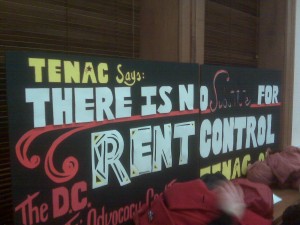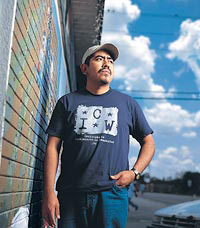LISTEN TO ALEXIS STOUMBELIS & BURKE STANSBURY
Audio clip: Adobe Flash Player (version 9 or above) is required to play this audio clip. Download the latest version here. You also need to have JavaScript enabled in your browser.
LISTEN TO ROSA LOZANO & SONIA UMANZOR
Audio clip: Adobe Flash Player (version 9 or above) is required to play this audio clip. Download the latest version here. You also need to have JavaScript enabled in your browser.
This winter, activists and supporters have gathered in four cities across the U.S. (Seattle, LA, NY and DC) to celebrate the 30th anniversary of CISPES (Committee in Solidarity with the People of El Salvador). The organization shares the same birthday as the FMLN (Farabundo Marti National Liberation Front), which formed in response to growing U.S. backed violence in El Salvador. CISPES was created in order to build “a national movement to end U.S. support for the military regime in El Salvador and to stand in solidarity with the struggle for self determination in the Americas.” Today, it is not a U.S. backed military regime in power in El Salvador, but the FMLN.
December 11, at the 30th anniversary celebration at St. Stephen’s Church in northwest DC, CISPES executive director Alexis Stoumbelis discussed the conditions which gave rise to both CISPES and FMLN: “In 1980, there was just alarming violence and rising repression from the Salvadoran state, especially the Salvadoran military and paramilitary forces, against social movements, unions, especially the student movement, organized campesinos and farmers. All of the social movements in El Salvador that had really been taking to the streets and posing a really powerful challenge to the regime in the late 70s were being disappeared, murdered… by the thousands.”







